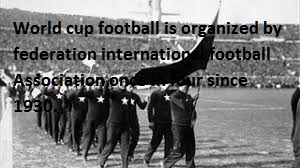GREAT SCIENTISTS WHO HAVE CHANGED HISTORY

1.Marie Curie 1867 – 1934
Polish physicist and chemist and naturalized-French physicist t, Marie Curie was a pioneer in the field of radioactivity and chemistry .
Honored with Nobel Prizes in two different sciences and first female professor at the University of Paris. . Her husband Pierre Curie was a Nobel laureate,
Her achievements include the theory of radioactivity,isolate polonium and radium in pure form techniques for isolating radioactive isotopes, and the discovery of two new elements, radium and polonium.
Curie and her husband published a joint paper announcing the existence of an element which they named "polonium", in honour of her native Poland.
It was also under her personal treatment of neoplasms (“cancers”), using radioactive isotopes when exposed to radium, diseased, tumor-forming cells were destroyed faster than healthy cellsnew chemical elements – radium and polonium . She was the first women to achieve PhD from paris university.
Curie founded the Curie Institutes in Paris and Warsaw
2.Max Planck 1858 – 1947
Max Planck, a German physicist, is the founder of quantum theory, and one of the most important physicists . Planck important his role as originator of the quantum theory. the observation that the greatest amount of energy being radiated from a “black body”
One photon of light carries exactly one quantum of energy. Planck is considered the father of the Quantum Theory. According to Planck: E=h , where h is Planck's constant (6.62606957(29) x 10 -34 J s), ν is the frequency, and E is energy of an electromagnetic wave.
3.Niels Bohr 1885 – 1962
Niels Bohr was a Danish physicist who made fundamental contributions to understanding atomic structure and quantum mechanics, for which he received the Nobel Prize in Physics in 1922.
Bohr’s work helped solve the problems classical physics could not explain about the nuclear model of the atom.
He advanced the theory of electrons travelling in orbits around the atom's nucleus,Niels Bohr proposed a theory for the hydrogen atom based on quantum theory that energy is transferred only in certain well defined quantities.
He postulated that electrons moved in fixed orbits around the atom’s nucleus, and he explained how they emitted or absorbed energy. He proved that atoms give off electromagnetic radiation as a result of electrons jumping to different orbit levels
4.Charles Darwin 1809 – 1882
English naturalist and biologistFrom August of 1831 through 1836, he signed on as a naturalist on a scientific voyage aboard the HMS Beagle which sailed the world in an effort to study various aspects of science and the natural world.
Darwin state that all species of life have evolved from common ancestors through natural selection.
He explains life sciences and explains where living things came from and how they adapt. In life, there is heredity, selection, and variation. All species arise and develop through the natural selection inherited variations that increase ability to compete, survive, and reproduce.
His 1859 book On the Origin of Species established evolution by common descent as the dominant scientific explanation of diversification in nature.
Differences in the plant or animal got from their own ancestors, but some are caused by mutations.The struggle for existence is a natural to the competition between living things to survive. Evolution is a concept from biology that tries to explain how different life-forms change over time most children are not exactly like their parents, there is change. Some of the children will have different features . Competition is an interaction between organisms or species in where the fitness of suppressed by the presence of another.
5.Alan Turing 1912 – 1954
English computer scientist, mathematician, logician, cryptanalyst, philosopher and theoretical biologist , father of modern computer science.
He gave formalization concept of the algorithm and computation with the Turing machine. turning is a test of a machine's ability to exhibit intelligent behavior equivalent to, or indistinguishable from, that of a human.
During World War II, he developed a machine that break the German Enigma code. He lid ground for modern computing and theorized about artificial intelligence.
You may also like :

 Corona virus _ A Virus or Conspiracy by China..
Corona virus _ A Virus or Conspiracy by China.. What Your Sun Sign Says..
What Your Sun Sign Says.. Top 10 Football Player With Highest Number of Goals..
Top 10 Football Player With Highest Number of Goals.. Worlds most expensive car and who is the owner..
Worlds most expensive car and who is the owner.. does amazon affiliate pay for clicks and Amazon Affiliate program click payment terms and condition..
does amazon affiliate pay for clicks and Amazon Affiliate program click payment terms and condition..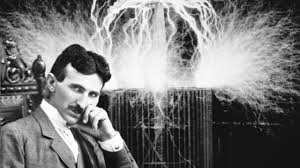 Nikola Tesla the electric man..
Nikola Tesla the electric man..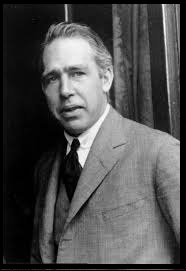 How Bohr impoved Atomic theory..
How Bohr impoved Atomic theory.. Magic Behind the Radiation-Quantum Theory of Radiation and Black body ..
Magic Behind the Radiation-Quantum Theory of Radiation and Black body ..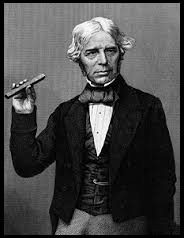 How Electromagnetism was discovered used and who pioneered it..
How Electromagnetism was discovered used and who pioneered it..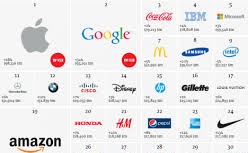 TOP MOST VALUED COMPANIES ..
TOP MOST VALUED COMPANIES .. WORLD COULD BE END SOON IF..
WORLD COULD BE END SOON IF.. Tech Giants Microsoft Facebook Twitter YouTube against terrorism..
Tech Giants Microsoft Facebook Twitter YouTube against terrorism..




